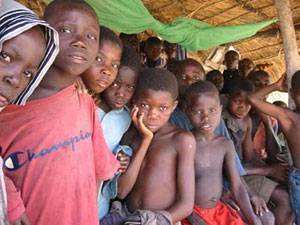
Cape Coast, June 23,GNA - Stakeholders in the Central Region have pledged their readiness to undertake effective collaborations to end the spate of teenage pregnancy and child marriages, which has become a menace in the Region.
The Region recorded more than eight per cent increase in child marriage between 2006 and 2011, according to statistics from the 2011 Multiple Indicator Cluster Survey (MICs), the second highest after the Upper East Region.
The Multiple Indicator Cluster Survey is undertaken in every five years.
Currently, child marriage prevalence in the Region stands at 31.2 per cent and that placed the Region fourth after the Upper East, Western and Upper West regions.
Also, data collected from 5,112 adolescent pregnant girls by the Ghana Health Service (GHS) in 2016, said more than 29.3 per cent of the girls were either married or were in a union.
At a stakeholder's training workshop on 'ending child marriage in the Region', the stakeholders unanimously accepted that the increasing numbers of child marriages and teenage pregnancy was unacceptable and a threat to the future of the Region if collaborative efforts were not made to end it.
In view of this, the stakeholders promised to embark on regular sensitisation programmes to engender self-recognition and behavioural change among parents and make them understand their responsibilities towards their girls.
The stakeholders included members from the traditional council, the Regional Coordinating Council (RCC), Civil Society Organisations (CSOs), community leaders, Departments of Gender, Ghana Education Service (GES) and the Ghana Health Service.
The rest are the Domestic Violence and Victims Support Unit (DOVVSU) of the Ghana Police Service, the Commission on Human Rights and Administrative Justice (CHRAJ), Religious leaders, Social Welfare and women groups.
The workshop was organised by the Department of Gender under the auspices of RCC and funded by the United Nations Population Fund (UNFPA).
It was among other things to empower stakeholders to understand child marriage and its negative effects and also to equip them with the requisite skills to help end the menace in the Region.
The stakeholders cited high parental neglect and irresponsibility, poverty and extreme vulnerability of families, entrenched social and cultural norms, low preventive action by parents and the weak political will of government to enforce existing laws and legislation among others as key factors promoting the menace.
Mrs Thywill Eyra Kpe, Regional Director of the Department of Gender, said the negative effects of early marriage included infertility and high mortality, high number of teenage mothers and high number of school dropouts among girls and increased poverty had unbearable consequences on society.
She said the dynamics must be a grave concern for all stakeholders to re-strategise and to take accelerated action on the menace of child marriage for sustainable development.
She said the physical, sexual, emotional and psychological effects on victims of child marriage clearly indicated that the practice contravened the best interests of the child.
Mrs Kpe said both national and international laws on child marriage reflected the belief that children do not have the maturity and mental capacity to make decisions on legally binding relationships like marriage.
GNA
By Afedzi Abdullah, GNA




 Dumsor: Don't rush to demand timetable; the problem may be temporary — Atik Moha...
Dumsor: Don't rush to demand timetable; the problem may be temporary — Atik Moha...
 Space X Starlink’s satellite broadband approved in Ghana — NCA
Space X Starlink’s satellite broadband approved in Ghana — NCA
 2024 election will be decided on the grounds of the economy; choice of running m...
2024 election will be decided on the grounds of the economy; choice of running m...
 Dumsor: We're demanding less; just give us a timetable — Kwesi Pratt to ECG
Dumsor: We're demanding less; just give us a timetable — Kwesi Pratt to ECG
 Do I have to apologise for doing my security work, I won’t – Simon Osei-Mensah r...
Do I have to apologise for doing my security work, I won’t – Simon Osei-Mensah r...
 All my businesses have collapsed under Akufo-Addo — NDC Central regional chair
All my businesses have collapsed under Akufo-Addo — NDC Central regional chair
 Military, Prison Officers clash in Bawku, three injured
Military, Prison Officers clash in Bawku, three injured
 GRA-SML contract: MFWA files RTI request demanding KPMG report
GRA-SML contract: MFWA files RTI request demanding KPMG report
 Court threatens to call second accused to testify if NDC's Ofosu Ampofo fails to...
Court threatens to call second accused to testify if NDC's Ofosu Ampofo fails to...
 Family accuses hospital of medical negligence, extortion in death of 17-year-old...
Family accuses hospital of medical negligence, extortion in death of 17-year-old...
